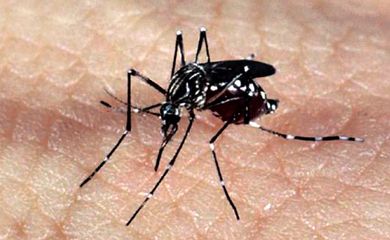Brazil on alert for Aedes aegypti again in 2015


Aedes aegypti 

With the growing demand for bug sprays in drugstores across the country this summer, the product is often missing from the shelves. This is all due to the spreading of an old acquaintance of Brazilians: the Aedes aegypti mosquito. In addition to the dengue and the chikungunya fever, the insect is also a vector for the Zika virus, a recent arrival in Brazil.
It was strongly suspected that the virus, which began circulating in the country last year, was the cause of a surge in the number of children with microcephaly. The suspicion was confirmed on November 28.
The Ministry of Health reported that, as of December 26, 2,975 newborn babies were suspected of having microcephaly related to Zika in 656 municipalities across 20 Brazilian states.
Last week, the Ministry of Health warned that mosquito prevention efforts should be stepped up during the holiday and Christmas season, a period of intense rain in many states and wider movement of people. Travelers are advised to carry out a careful inspection before leaving home, checking for containers where still water could potentially accumulate and provide a breeding site for the mosquito.
In an interview to Agência Brasil, Nancy Bellei, of the Brazilian Infectious Disease Society, explained that the surge in the rates of infection with the three virus types during the summer is expected because of the mosquito's biological characteristics. Mosquito eggs, she explained, can stick to the inside and outside surfaces of containers and remain there for up to a year without water. Within five or six days of the first rain, these eggs develop into new insects.
This year, a total 114.4 tons of larvicides has been sent out throughout the country as an effort to treat 57.2 billion liters of water. For next year, the Health Ministry has already purchased over 100 tons of the product, an amount that should ensure a supply until June 2016, totaling an investment of $2.6 million.
Translated by Mayra Borges
Fonte: Brazil on alert for Aedes aegypti again in 2015


